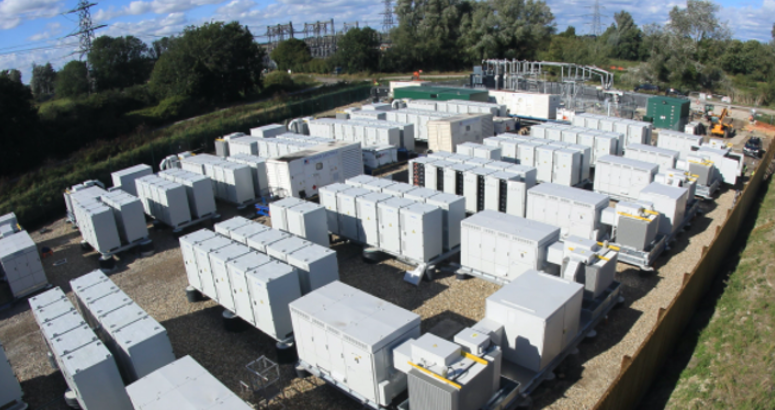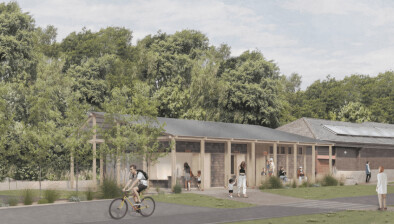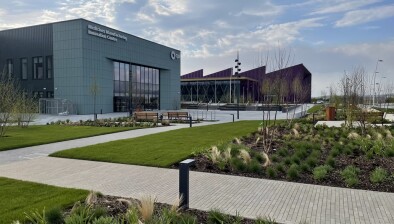Battery energy storage facilities planned across Scottish Water Renfrewshire sites

Battery energy storage systems support by balancing supply and demand
A renewable energy developer is planning to build three battery energy storage systems across three Scottish Water sites in Renfrewshire.
The battery energy storage systems would play an important role in balancing supply and demand and providing niche services to support the operation of the electricity network.
Bluestone Energy has submitted three proposals to the Scottish Government for battery energy storage systems at Scottish Water’s Laighpark Waste Water Treatment Works (WWTW), Stanely Water Treatment Works (WTW) and Linwood Waste Water Pumping Station (WWPS).
The applications for consent will be submitted later in the year following consultation with local stakeholders.
Following successful determination, the battery energy storage systems would provide flexibility and security of supply for the electricity system, which is vital alongside the increased deployment of renewable energy assets.
Battery energy storage systems support by balancing local and national electricity networks by charging to store excess generated electricity when demand is low and discharging to release stored electricity when demand is high.
This is particularly important as part of the decarbonisation of the electricity system as we move away from the utilisation of coal and gas generation, while increasing intermittent renewable generation, such as wind and solar PV.
This requirement will become even greater as the decarbonisation of heating and transport through heat pumps and electric vehicles progresses. Battery energy storage systems can also provide niche services, due to their rapid response time, to support day-to-day electricity network operations.
Each project will consist of 20 battery energy storage system units providing a combined capacity of 69MW, a control room to allow the operation and maintenance of the system and associated electrical infrastructure to facilitate a connection to the local electricity network.
Each project will connect directly to Scottish Power Electricity Networks substations and will be facilitated by Scottish Water Horizons, the public utility’s commercial subsidiary.
Andy MacPherson, managing director at Bluestone Energy, said: “Rapid deployment of flexible assets such as battery energy storage are essential in Scotland delivering net zero by 2045.
“The battery energy storage systems could provide low cost green electricity to consumers and minimise our demand for imported electricity and gas.”
Donald MacBrayne, business development manager of Scottish Water Horizons, said: “We are delighted to be able to work with Bluestone Energy on these exciting projects by facilitating at our three sites in Renfrewshire. These projects align with Scottish Water’s ambitions to be net zero by 2040 and goes beyond by working in partnership with others to reduce their emissions too. By taking this approach we can all make significant contributions to Scotland’s net zero goals.
“These three sites were chosen to host the battery energy storage systems due to suitable land and close proximity to Scottish Power Electricity Networks substations with an available point of connection and network capacity.
“Although the projects are on Scottish Water’s land, the battery energy storage systems do not provide any power directly to Scottish Water. However, Scottish Water have agreed a land lease deal to host the projects, with revenue received being reinvested in renewable projects for the benefit of customers.”
Bluestone Energy is developing a total of six battery energy storage systems across Scottish Water sites, including Laighpark WWTW, Stanely Water WTW and Linwood WWPS, which have a combined capacity of 403MW. These projects form part of a joint development agreement with Macquarie Asset Management’s Green Investment Group to develop in excess of 2 GW of battery energy storage capacity throughout the UK.

















